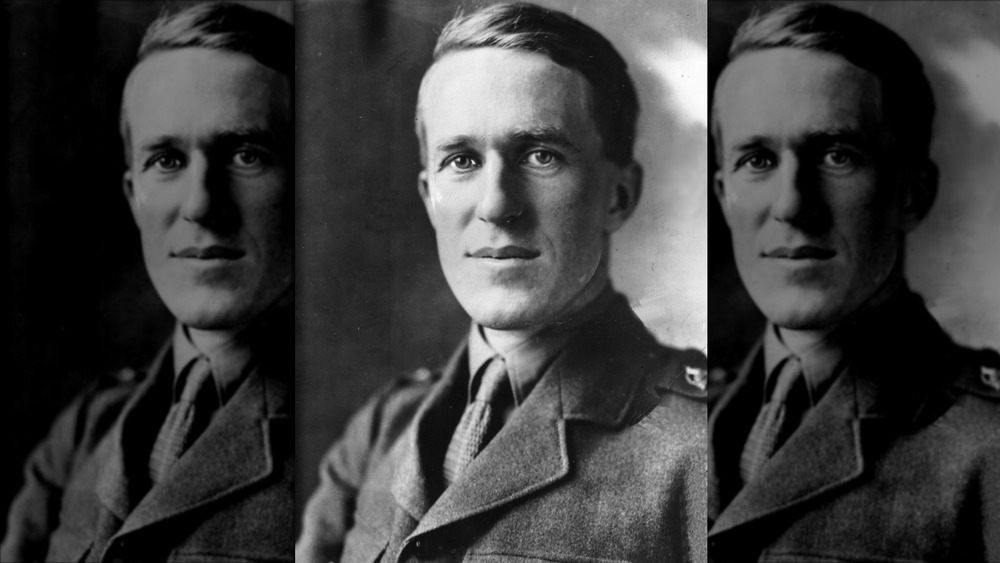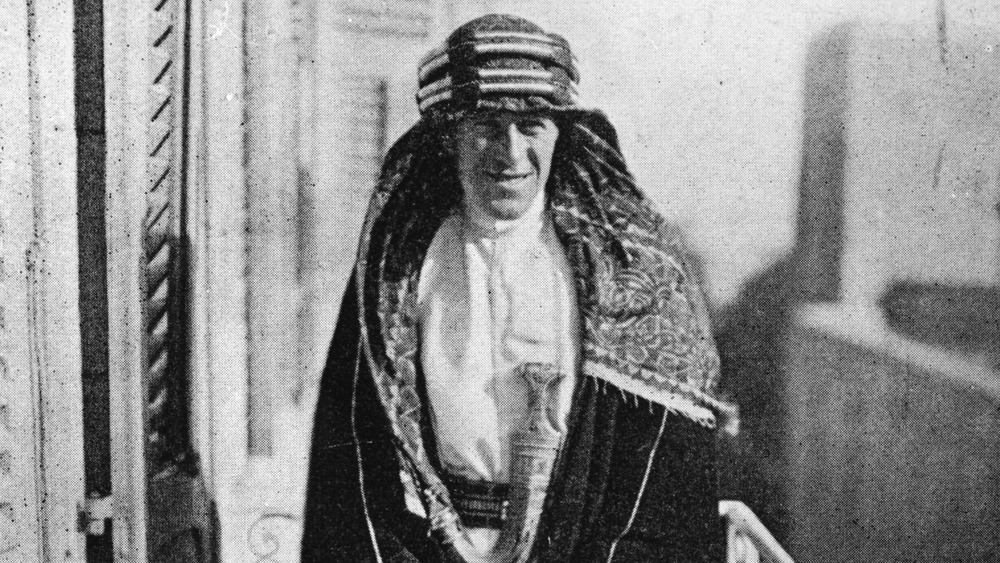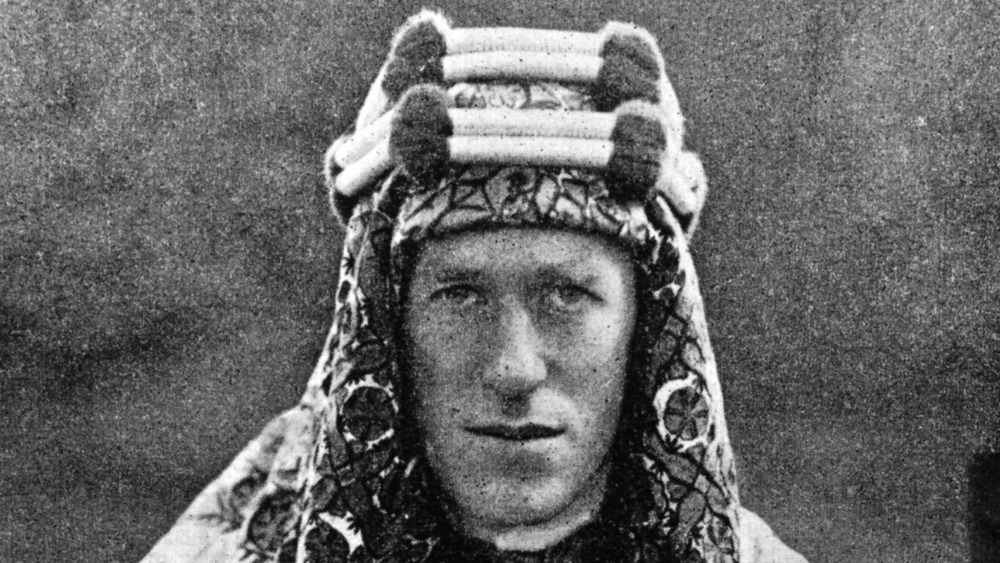Why Lawrence Of Arabia Was Kicked Out Of The Royal Air Force
We may receive a commission on purchases made from links.
The 20th-century British archaeologist, solder, diplomat, and author T. E. Lawrence lived a truly adventurous life. He gained notoriety after fighting alongside Arab rebels during World War I, during which time he invented several guerrilla war tactics utilized during their successful insurgence against the Ottoman Turks. But according to History.com, despite his many innovative and successful exploits during the war, he remained in obscurity (where he would have liked to stay) until a year after the November 1918 armistice finally brought the bloody conflict to an end. Even though the Turks had put a bounty on Lawrence's head, they were ignorant of what the face on it actually looked like.
That obscurity wouldn't last. As PBS notes, the American journalist Lowell Thomas would end up launching Lawrence to worldwide fame after he filmed the Englishman working and fighting alongside the Arab rebels. In 1919, Thomas took the footage to New York, where Lawrence's exploits captivated crowds ready for adventure, romance, and excitement after years of the erroneously dubbed "war to end all wars." Its two-week run in London was extended to six months, and the show went on to wow audiences across the world after that. Calling Thomas a "vulgar man," Lawrence claimed he didn't like the fame and would later say that he'd been tricked into allowing himself to be filmed and photographed. The journalist argued that he'd had a willing subject and said that Lawrence "had a genius for backing into the limelight."
The fame led Lawrence of Arabia to enlist in the Royal Air Force under an assumed name
Lawrence was so opposed to his unwanted fame that he even refused being knighted when King George V summoned him to Buckingham Palace in 1918. According to the BBC, he was appointed as a political adviser to Winston Churchill, who was the British Colonial Secretary at the time. Lawrence resigned a year later, however, and enlisted in the Royal Air Force (RAF) in search of his longed-for anonymity. To that end, he signed up under the pseudonym John Hume Ross, but the ruse didn't last long. The hounding press found out Ross's real identity a few months later and outed him as the famed Lawrence of Arabia. Once the secret was out, the RAF determined that the publicity had rendered it impossible to keep "Aircraftman Ross" enlisted, and he was discharged from the RAF in January 1923. According to Britannica, Lawrence, now an unwilling civilian, found that re-enlistment was impossible.
But he was determined to find a way back into the military. So he changed his name once again, this time, to T. E. Shaw, taking inspiration from his friend and literary mentor, the Irish playwright George Bernard Shaw. He enlisted in the Royal Tank Corps the month after being discharged, but was soon disillusioned with the army and badly wanted to return to the RAF.
The media attention continued to hound Lawrence of Arabia throughout his military career
There may have been something to Thomas's description of Lawrence, for despite apparently being no fan of his own celebrity, he went on to publish a memoir of his time in the war. (Nothing says "Don't look at me!" like writing a 700-page book about yourself.) The Seven Pillars of Wisdom was published in 1926 for a limited group of subscribers, and an abridged version, titled Revolt in the Desert, was published for sale to the general public in 1927. The book became an instant bestseller and only magnified Lawrence's allegedly unwanted fame.
By this time, he'd been transferred back to the RAF, and the publicity from Revolt in the Desert would end up getting Lawrence reassigned to RAF bases in India. But the press was determined to follow him to any corner of the world. In September 1928, The New York Times ran a piece suggesting that he was acting as a spy under the guise of a Muslim holy man, and the French and Russian press published the rumors a few months later. The attention once again caused problems for Lawrence's superiors, who decided to bring him back from India. He spent the last years of his military service working as a boat mechanic in Plymouth.
Lawrence finally retired from the RAF in February 1935 and died in a tragic motorcycle accident just a few months later.


